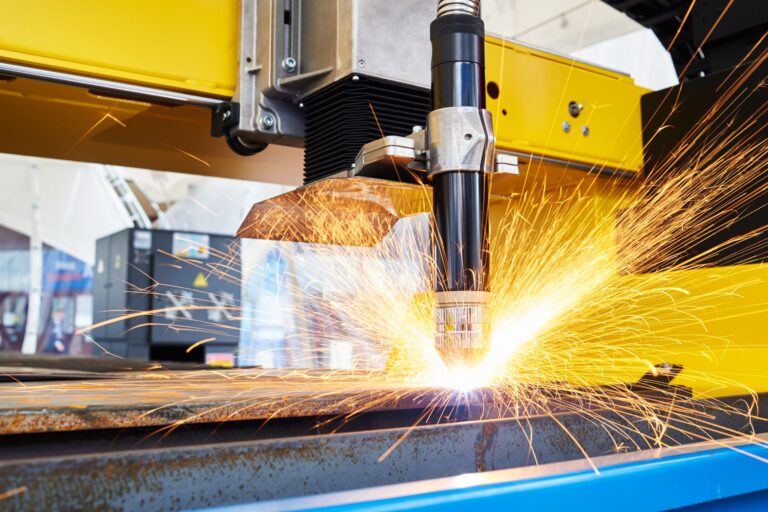The manufacturing industry is undergoing a significant transformation, driven by the rapid adoption of digital technologies. From enhancing efficiency to enabling real-time decision-making, digitalization is reshaping traditional processes and setting new standards for productivity and innovation. This shift, often referred to as Industry 4.0, is revolutionizing how manufacturers operate in today’s competitive landscape.
Understanding Digitalization in Manufacturing
Digitalization involves integrating digital technologies into all aspects of manufacturing, including production, supply chain management, and quality control. By leveraging tools such as the Internet of Things (IoT), artificial intelligence (AI), and big data analytics, manufacturers can achieve unprecedented levels of connectivity, automation, and efficiency.
Key Advancements Enabled by Digitalization
1. Smart Manufacturing Systems
Smart factories are at the heart of digitalization. These systems utilize IoT-enabled devices and sensors to collect and analyze data in real-time. This connectivity enables predictive maintenance, reduces downtime, and enhances overall equipment effectiveness (OEE). For instance, smart systems can alert operators to potential issues before they result in costly failures.
2. Data-Driven Decision Making
Digitalization provides manufacturers with access to vast amounts of data. By analyzing this data using AI and machine learning algorithms, companies can uncover trends, optimize processes, and make informed decisions. This data-driven approach improves efficiency and helps manufacturers respond more quickly to market changes.
3. Digital Twins
A digital twin is a virtual replica of a physical asset, process, or system. By simulating production processes in a digital environment, manufacturers can test scenarios, optimize workflows, and predict outcomes without disrupting actual operations. Digital twins are particularly valuable for prototyping and improving complex manufacturing systems.
4. Enhanced Supply Chain Management
Digital technologies are transforming supply chain management by improving visibility and coordination. With IoT-enabled tracking and blockchain for secure transactions, manufacturers can monitor materials and products throughout the supply chain, ensuring timely delivery and reducing inefficiencies.
5. Increased Customization and Flexibility
Digitalization enables mass customization by allowing manufacturers to adapt production processes to meet specific customer requirements. Advanced technologies like 3D printing and automated production lines make it possible to produce small batches efficiently, catering to the growing demand for personalized products.
Benefits of Digitalization in Manufacturing
- Improved Efficiency: Automation and real-time monitoring reduce manual tasks and improve operational efficiency. This allows manufacturers to achieve higher output with fewer resources.
- Enhanced Product Quality: Digital technologies enable precise control over production processes, resulting in consistent and high-quality products. Real-time quality monitoring ensures that defects are identified and addressed promptly.
- Sustainability: By optimizing resource usage and reducing waste, digitalization supports sustainable manufacturing practices. For example, energy-efficient machines and data-driven energy management contribute to a smaller carbon footprint.
- Cost Savings: While the initial investment in digital technologies can be significant, the long-term savings from reduced waste, lower energy consumption, and improved productivity outweigh the costs.
Challenges of Implementing Digitalization
Despite its numerous advantages, adopting digital technologies is not without challenges. High implementation costs, cybersecurity concerns, and the need for a skilled workforce are some of the barriers manufacturers face. However, these challenges can be mitigated through strategic planning, employee training, and investment in robust cybersecurity measures.
The Role of Companies in Driving Digital Transformation
As the manufacturing industry embraces digitalization, companies like SL Industries are leveraging these advancements to enhance their processes and deliver superior results. By integrating smart technologies and fostering a culture of innovation, SL Industries demonstrates how digitalization can drive success in today’s dynamic market. The company’s focus on continuous improvement ensures that it remains at the forefront of this transformation, providing high-quality solutions tailored to the needs of its clients.
Conclusion
Digitalization is reshaping manufacturing processes, offering new opportunities for growth, efficiency, and sustainability. As technologies continue to evolve, manufacturers must embrace this shift to remain competitive and meet the demands of an increasingly connected world. By staying ahead of the curve, companies can harness the full potential of digitalization, setting the stage for a more innovative and resilient future in manufacturing.






